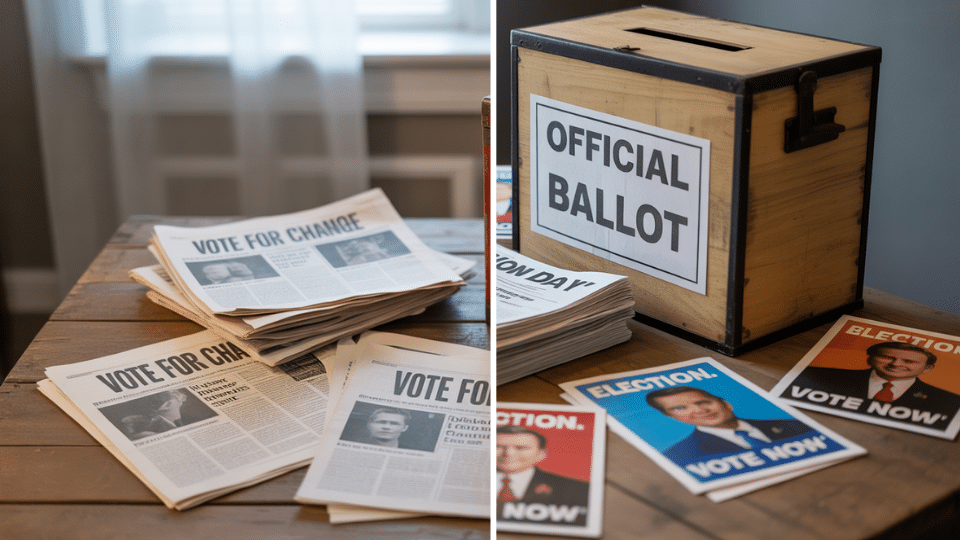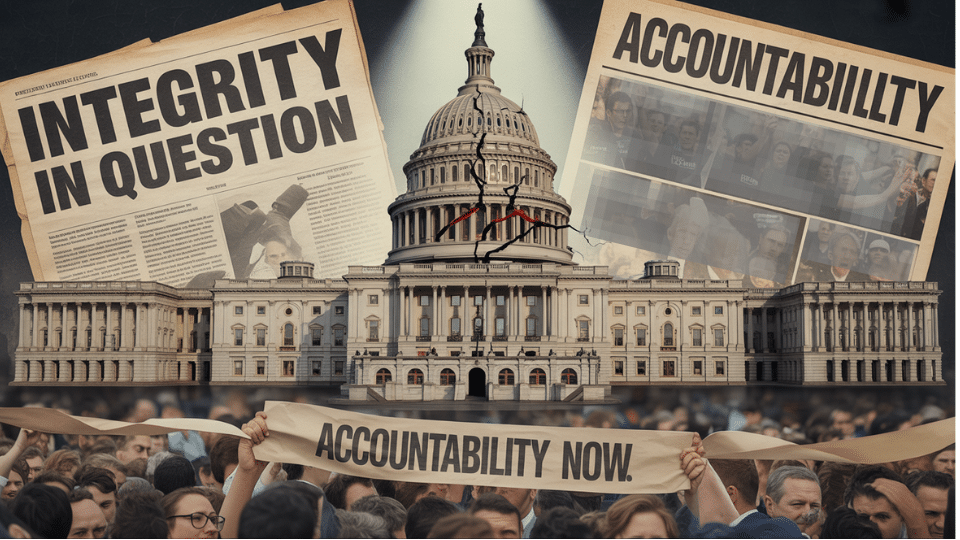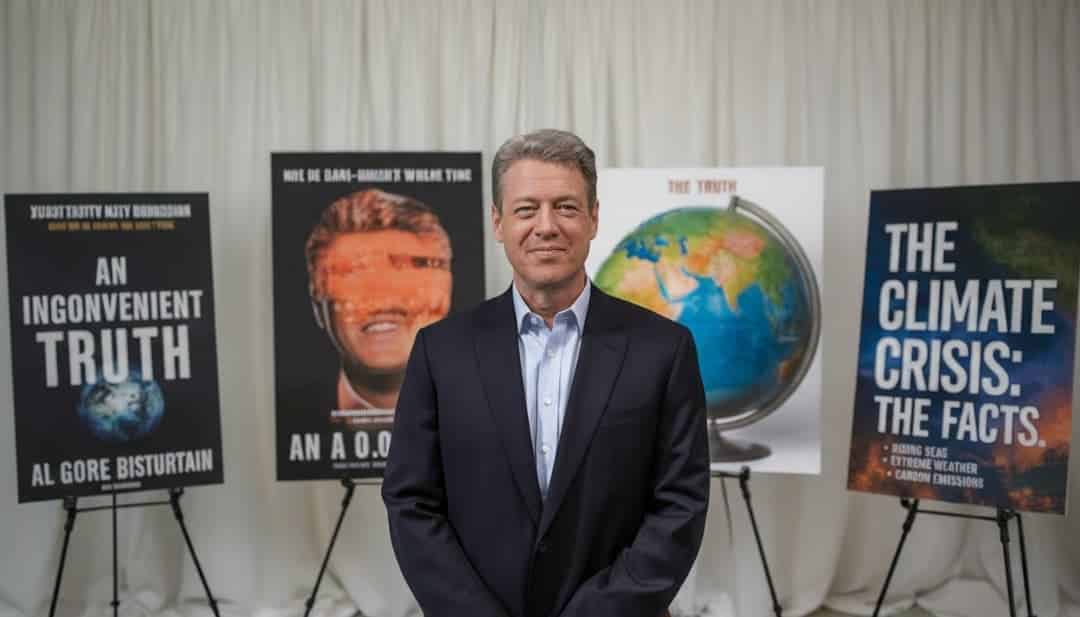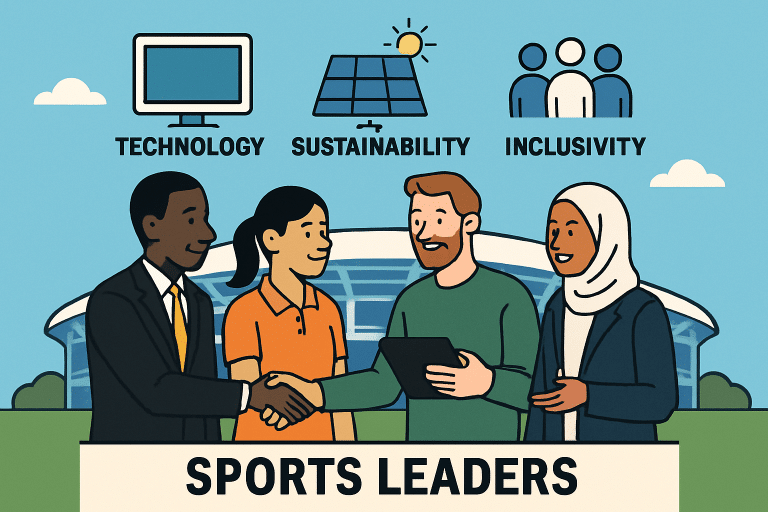Why do some scandals topple governments while others barely dent a politician’s career?
Scandals expose corruption, lies, or abuse of power, and they almost always shake public trust.
Some force resignations or inspire new laws. Others reveal how deeply partisanship shields leaders from fallout.
In this blog, I’ll show you how political scandals influence elections by examining significant cases from the 20th and 21st centuries.
Each one reveals what happened, how it reshaped politics, and how elections and voter behavior shifted.
These stories prove scandals are more than headlines; they are turning points in democracy.
How Political Scandals Influence Elections?

Political scandals have shaped governments and voter trust across decades. These examples show how controversies shifted campaigns and election results.
1. The Enron Collapse and U.S. Politics (2001)
Enron was once praised as a model of corporate innovation.
Executives Jeffrey Skilling, Kenneth Lay, and Andrew Fastow created a massive accounting fraud that hid debt and inflated profits.
When the company collapsed in 2001, it was the largest bankruptcy in U.S. history.
Thousands lost jobs and pensions, and investors were wiped out.
Impact on Politics and Laws
Enron had close ties to Washington.
Its collapse triggered hearings about corporate money in politics and weak regulation.
Congress responded with the Sarbanes-Oxley Act of 2002, a law that tightened accounting rules and increased penalties for fraud.
Voters’ Reaction After the Scam
In the 2002 midterms, Enron became a symbol of unchecked corporate power.
Candidates campaigned on ethics, accountability, and tougher oversight.
Voters began questioning the influence of corporations in politics, reshaping debates for years to come.
2. The Jack Abramoff Lobbying Scandal (2006)
Lobbyist Jack Abramoff used gifts, luxury trips, and donations to bribe lawmakers.
He pushed them to pass laws favoring his clients, including casino interests.
The scheme unraveled in the mid-2000s, and Abramoff pled guilty to fraud, tax evasion, and bribery.
Several lawmakers were investigated, convicted, or forced to resign.
Impact on Politics and Laws
The scandal exposed how lobbying distorted U.S. politics.
Congress passed reforms limiting gifts from lobbyists and tightened disclosure rules. “Abramoff” became shorthand for corruption.
Voters’ Reaction After the Scam
In the 2006 midterms, voters punished incumbents seen as corrupt.
Ethics became a major campaign theme, and Democrats gained control of both the House and Senate.
The scandal showed how anger over corruption could swing power between parties.
3. The Petrobras Scandal in Brazil (2014)
Known as Operation Car Wash, this scandal revealed how executives at state oil company Petrobras funneled billions through inflated contracts and kickbacks.
Politicians across parties were implicated, including former president Luiz Inácio Lula da Silva.
Impact on Politics and Laws
The investigation lasted years, uncovering systemic corruption in Brazil’s political and business elite.
It led to new laws on procurement and corporate transparency, while judges and prosecutors gained greater prominence.
Voters’ Reaction After the Scam
By 2014, the revelations damaged public trust. In the 2018 election, outsider Jair Bolsonaro won the presidency on an anti-corruption platform.
Voters abandoned traditional parties, reshaping Brazil’s political map.
4. The Cambridge Analytica Data Scandal (2018)
In 2018, it was revealed that Cambridge Analytica harvested Facebook data from millions without consent.
The data was used to target political ads in the 2016 U.S. election and the Brexit referendum.
Whistleblower Christopher Wylie and CEO Alexander Nix exposed the tactics, while Facebook’s Mark Zuckerberg faced global scrutiny.
Impact on Politics and Laws
The scandal exposed the dark side of digital campaigning. Lawmakers debated stricter rules on data privacy, and Facebook pledged reforms.
It also sparked global conversations about misinformation and the power of tech companies in politics.
Voters’ Reaction After the Scam
Voters realized their personal data could be weaponized in campaigns.
Trust in social media declined, and digital transparency became an election issue.
Candidates began promising stronger data protections, reflecting public demand for accountability.
5. The Panama Papers Leak (2016)
Millions of leaked documents from law firm Mossack Fonseca revealed how world leaders and business elites used offshore accounts to hide wealth.
Those implicated included Iceland’s Prime Minister Sigmundur Davíð Gunnlaugsson, associates of Vladimir Putin, and relatives of Xi Jinping.
Impact on Politics and Laws
The leak sparked global outrage, leading to investigations, resignations, and tax reform debates.
Governments pledged to crack down on tax havens and increase financial transparency.
Voters’ Reaction After the Scam
In Iceland, public anger forced Gunnlaugsson to resign, and voters turned toward parties that campaigned on ethics.
Elsewhere, corruption became a top election issue, fueling skepticism toward elites.
6. Watergate Scandal, U.S. (1972–1974)
A break-in at the Democratic National Committee headquarters revealed a pattern of illegal activities tied to President Richard Nixon’s reelection campaign.
Cover-ups, wiretapping, and political sabotage came to light. Though Nixon won reelection in 1972, mounting evidence forced his resignation in 1974.
Impact on Politics and Laws
Watergate led to reforms in campaign finance, greater limits on executive power, and stronger oversight of government agencies.
Voters’ Reaction After the Scam
The scandal shattered public trust. Voter cynicism deepened, and Congress shifted more control to the Democrats in subsequent elections.
“Watergate” became shorthand for political scandal itself.
7. Access Hollywood Tape, U.S. (2016)
A 2005 tape surfaced in October 2016 showing Donald Trump making crude remarks about women.
Released just weeks before the election, many thought it would end his campaign.
Impact on Politics and Laws
The tape fueled national debates about sexism, media coverage, and accountability.
Both parties faced questions about character and standards for candidates.
Voters’ Reaction After the Scam
Despite outrage, Trump’s base remained loyal.
The election showed how strong partisanship can shield candidates from scandals that might destroy others.
It revealed a growing divide in how voters process political misconduct.
8. Clean Hands (Mani Pulite), Italy (1990s)
Italian prosecutors uncovered a vast network of bribery and kickbacks involving political parties and businesses.
The probe, called Mani Pulite (“Clean Hands”), exposed corruption across the system.
Impact on Politics and Laws
The scandal dismantled Italy’s postwar political order. Longstanding parties collapsed, and the investigation reshaped political institutions.
Voters’ Reaction After the Scam
Voters abandoned traditional parties, fueling the rise of new movements.
The case showed how exposure of systemic corruption can trigger an electoral earthquake.
9. House Banking Scandal, U.S. (1992)
It was revealed that members of Congress had been overdrawing accounts at the House bank without penalty.
Though not illegal, the practice appeared unethical and fueled anger about privilege.
Impact on Politics and Laws
The scandal fueled debates about transparency and accountability in Congress.
While no sweeping laws followed, media scrutiny of congressional perks grew.
Voters’ Reaction After the Scam
The scandal fed a “throw the bums out” mood.
Many incumbents retired or lost, and voters elected a wave of new lawmakers.
It showed that even smaller scandals can spark big electoral shifts when public trust is low.
10. SNC-Lavalin Affair, Canada (2019)
Prime Minister Justin Trudeau was accused of pressuring Attorney General Jody Wilson-Raybould to halt a criminal case against engineering firm SNC-Lavalin.
Reports suggested he tried to protect jobs and the company’s reputation.
Impact on Politics and Laws
The scandal dented Trudeau’s reputation for ethical leadership. It triggered parliamentary hearings and debates about the independence of the justice system.
Voters’ Reaction After the Scam
In the 2019 election, Trudeau’s Liberal Party won but lost its majority.
The affair cost support in some regions and became a cautionary tale about the dangers of political interference.
What do These Scandals Teach Us?
Looking across these scandals, several lessons stand out:
- Corruption scandals often punish ruling parties and help reformers.
- Personal scandals may have less impact when partisanship is strong.
- Systemic scandals can collapse entire political orders.
- Media coverage is crucial; the more sustained, the greater the electoral fallout.
- Scandals often inspire reforms, from campaign finance laws to data privacy protections.
Conclusion
Political scandals shape elections in powerful ways. They expose hidden misconduct, spark anger, and change how voters view leaders.
Some scandals, like Watergate or Petrobras, caused major shifts that toppled governments and reshaped political systems.
Others, like the Access Hollywood tape, revealed how loyalty and polarization can limit their effect.
Together, these stories show that scandals are more than dramatic headlines; they are lessons in accountability and trust.
Understanding how political scandals influence elections reminds us that democracy depends on transparency.
Which scandal do you think changed politics the most? Share your thoughts and your view on the conversation.





































